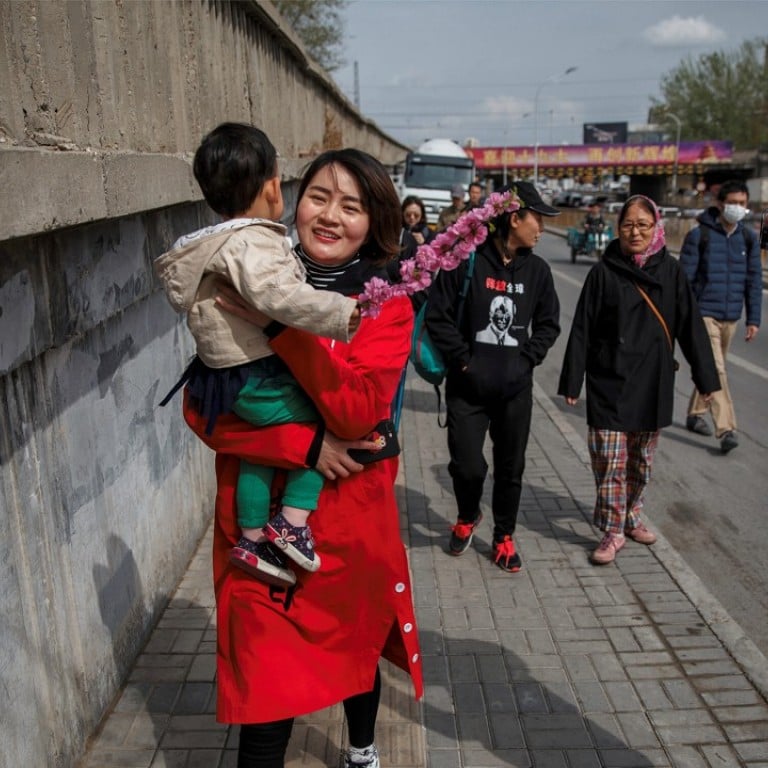
Wife of detained Chinese rights lawyer says she is under house arrest
Li Wenzu, who marched from Beijing to Tianjin ‘to find my husband,’ Wang Quanzhang, says authorities are now preventing her from leaving her home
The wife of a detained Chinese human rights lawyer who had nearly completed a 100-kilometre (60-mile) march to highlight her husband’s plight said she had been placed under house arrest on Wednesday.
“On April 11, 2018, trapped at home by forty or fifty people. A friend who came to visit was stopped and beaten. I can only climb out the window to shout,” Li Wenzu wrote on her Twitter page on Wednesday afternoon.
The post included a video of Li sitting on a window ledge shouting and angrily gesturing to a crowd below.
In the video she described the plight of her husband Wang Quanzhang, an attorney who represented political activists and disappeared in a 2015 police sweep.
“He went to court for ordinary people. Now he’s been arrested for a thousand days without [us] knowing if he is alive or dead. I went to find my husband,” she said, referring to her march.
A close friend of Li confirmed to Agence France-Presse that she was “being controlled” by state security officers.
“She still can’t leave her house,” the friend said Wednesday evening, requesting anonymity.
Li’s husband, Wang, has been charged with “subversion of state power” but authorities have blocked family-appointed lawyers from visiting him.
In addition to representing activists, he advocated on behalf of victims of land seizures.
His wife and a small group of supporters set off last Wednesday on a march from Beijing to the “No. 2 Detention Centre” in the northeastern city of Tianjin, where officials last said Wang was being held.
On Monday, shortly after reaching Tianjin, police officers detained at least two members of the group for several hours and forced Li and her friends to return to Beijing.
“They tried to make me give up on this march to Tianjin... I did not agree. I said that I have the freedom to go where I want,” Li said on Monday.
Agence France-Presse was unable to reach Li on Wednesday, and state security officials do not have any publicly listed contact details.
China’s ruling Communist party has repeatedly pledged to implement the “rule of law”, but analysts say cases like Wang’s highlight the stark limits of those promises.
“This sort of display of thuggery undermines the credibility of the Chinese criminal justice system,” Amnesty International China researcher William Nee said.
The country’s courts are tightly controlled by the party, with forced confessions often used as evidence and guilty verdicts delivered in more than 99.9 percent of criminal cases.
Wang was one of more than 200 Chinese human rights lawyers and activists who were detained or questioned in the summer of 2015 in the “709 crackdown” -- so called because the roundup took place on July 9 -- the largest clampdown on China’s legal profession in recent history.
While the majority were released on bail, a handful -- including the prominent lawyers Xie Yang and Li Heping -- were convicted of various crimes and sentenced to up to seven years in prison.
Wang’s case is unusual because no trial date has even been announced. He is the last person in the “709 crackdown” to remain in legal limbo.
Li has spent years trying in vain to obtain information on what has happened to her husband. Instead of answers, she has been put under constant police surveillance.
Li said that their son, now 5, is afraid of the state security officers who have moved into an apartment below their home.

.png?itok=arIb17P0)